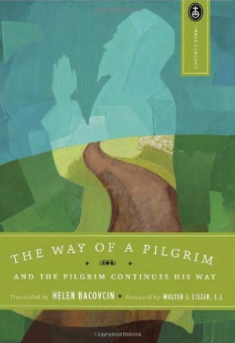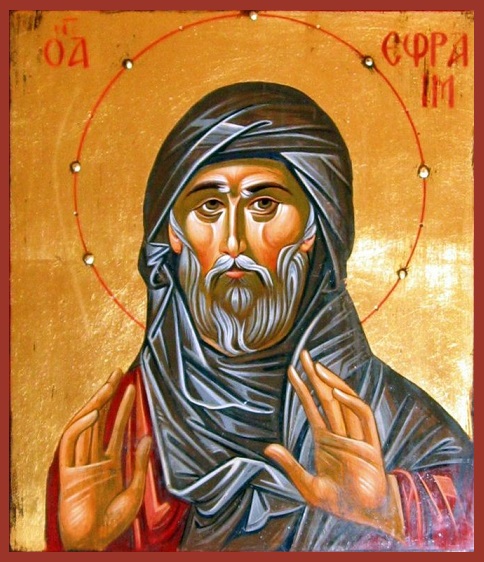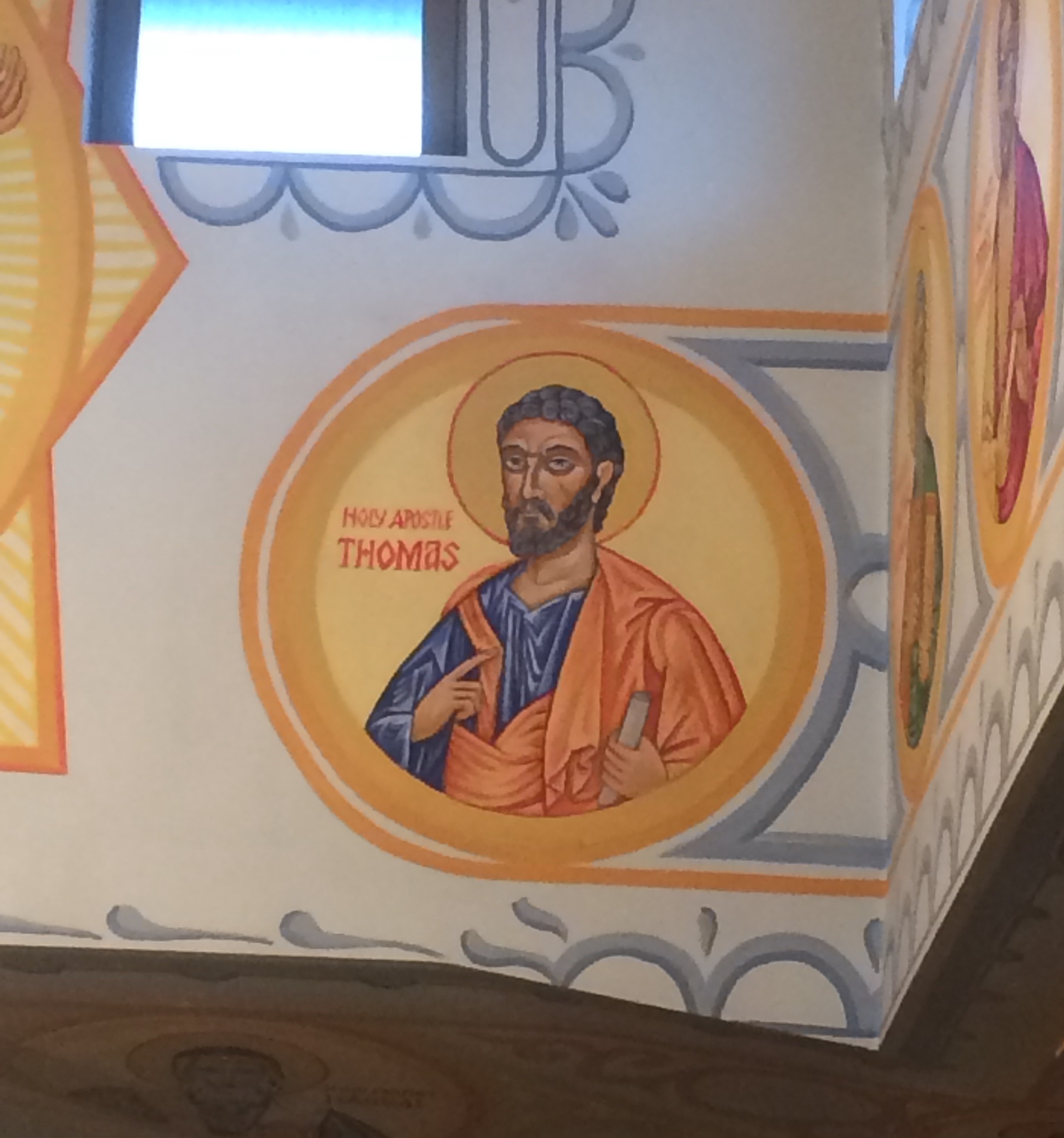Nativity Icon, from start to finish…

"We are travellers…not yet in our native land" – St. Augustine

 Given that I attend an Eastern Rite Church, I suppose that it’s no great surprise that I love the Eastern Fathers of the Church. In light of this, I wanted to share a video of a presentation given by Joseph Heschmeyer (soon to be Deacon Joseph Heschmeyer), about the Eastern Fathers on the subject of prayer:
Given that I attend an Eastern Rite Church, I suppose that it’s no great surprise that I love the Eastern Fathers of the Church. In light of this, I wanted to share a video of a presentation given by Joseph Heschmeyer (soon to be Deacon Joseph Heschmeyer), about the Eastern Fathers on the subject of prayer:

 I’ve been getting through lots of books recently. I’ve been intending to write reviews for each of them, but have been procrastinating. Therefore, over the next few days I will be publishing a review for each of the books I have recently read.
I’ve been getting through lots of books recently. I’ve been intending to write reviews for each of them, but have been procrastinating. Therefore, over the next few days I will be publishing a review for each of the books I have recently read.
Today I’d like to begin by talking about “The Way of a Pilgrim”. This review is also published on Amazon.com.
This book is well-known in eastern Christian circles and had been recommended to me by Eastern Orthodox and Eastern Catholic friends for several years, but I somehow never never quite managed to find the time to read it.
However, soon after returning to San Diego last month, it was announced that my parish would be beginning a study of this book during the Advent season. This gave me the extra bit of motivation I needed to buy this book and was subsequently very quickly hooked, finishing it in just a few days. Here’s how the book begins:
“By the grace of God I am a Christian, by my deeds a great sinner, and by my calling a homeless wanderer of humblest origin, roaming from place to place”
– The Way of the Pilgrim
I’m sure you can understand why this Restless Pilgrim loved these opening words!
 One of my new favourite websites is Trisagion Films. On this website you find lots of high qualify videos on a wide range of videos concerning Eastern Christianity, such as St. Ephrem and the vesting prayers prior to Divine Liturgy:
One of my new favourite websites is Trisagion Films. On this website you find lots of high qualify videos on a wide range of videos concerning Eastern Christianity, such as St. Ephrem and the vesting prayers prior to Divine Liturgy:
 If you ever visit an Eastern Catholic or Eastern Orthodox parish, you’ll find them adorned with many icons and, as I’ve mentioned in previous posts, these icons are dense with meaning.
If you ever visit an Eastern Catholic or Eastern Orthodox parish, you’ll find them adorned with many icons and, as I’ve mentioned in previous posts, these icons are dense with meaning.
At one point last year I brought a friend to my parish and we spent some time looking at the icons. He noticed that in the icons of the four Evangelists (Matthew, Mark, Luke and John), each of them is holding a book, symbolic of the Gospel attributed him. He then noticed the icon of St. Thomas and asked a question which caught me off-guard:
“Is the scroll he’s holding a reference to the ‘Gospel of Thomas’?”
I had never considered that association before! You see, the “Gospel of Thomas” is a non-Canonical work from the mid 2nd Century and was rejected by the Catholic Church. Bishop Eusebius from 3rd Century described it as “the fictions of heretics”. Given all that, it’s rather unlikely that the scroll in Thomas’ hand in a Catholic Church is a reference to a heretical work of antiquity!
So…what does the scroll in the Apostle’s hand represent? In Eastern iconography, a scroll represents holy wisdom and indicates that the person preached and held the rank of apostle.
A while ago I wrote a post talking about the exchanges you’ll commonly hear in the Byzantine circles (e.g. “Glory to Jesus Christ/Glory Forever”). In the Ruthenian Catholic Church you’ll often hear greetings and responses in Slavonic. I couldn’t find anywhere on the Internet to help learn them, so here’s my best attempt to list them all out phonetically and record them onto MP3….

“Slava Isusu Christu” (SLA-VA EE-SUE-SUE KRI-STU)
“Slava na Veeky” (SLA-VA NA VyEE-KEE)
An alternative dialect has it as
“Slava vo V’iki” (SLA-VA VO VyEE-KEE)
“Christos Razhdajetsja” (KRIS-TOS ROZH-DA-YET-SyAH)
“Slaveety Yoho” SLA-VEE-TE YEAH-HO)
“Christos Voskres” (KRIS-TOS VOS-KRES)
“Voistynu Voskres” (VO-EE-STEE-NU VOS-KRES)
An alternative dialect has it as:
“Christos Voskrese” (KRIS-TOS VOS-KRES-E)
“Voistinu Voskrese” (VO-EE-STEE-NU VOS-KRES-E)
“Chrystos Posredi nas” (KRIS-TOS POS-RE-DI NAS)
“I yest i budet” (YEST EE BOO-DET)
I hope this helps! If anyone out there is a Slavonic expert and would like to correct my pronunciation or phonetic spelling, please leave me a comment! Also, if you’d like to teach the world the responses in Greek, Russian etc, please let me know
 Last week we had some Taizé chant, so I thought this week we’d have a Byzantine chant, “O Virgin Pure”:
Last week we had some Taizé chant, so I thought this week we’d have a Byzantine chant, “O Virgin Pure”: